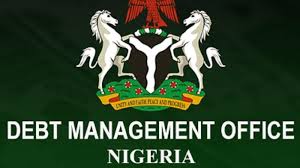Emir Sanusi at AfDB meeting, calls for regional cooperation, structural reforms in Africa
Former Central Bank of Nigeria (CBN) Governor and current Emir of Kano, Muhammadu Sanusi II, has stressed that Africa’s development agenda must focus on the socio-cultural and commercial interests of Africans and the upliftment of Africa’s trade and economic ecosystem.
Speaking at the closing ceremony of the African Development Bank (AfDB) Group Annual General Meeting in Busan, South Korea, he made it clear that the only way African economies will achieve desired development targets is to deepen regional cooperation with strong structural reforms.
His position tallied with experts observation from the latest economic figures released by the National Bureau of Statistics (NBS) which show that whereas it is cheering, on the surface, that the latest data shows expansion in oil and non-oil sectors, the fact that growth rate in the latter significantly lags the strong double-digit recorded in the former is concerning.
The implication of non-oil sector fragility for the federal government’s economic diversification drive cannot be overemphasized, considering the need for sound industrial development to drive agricultural entrepreneurship.
Sanusi averred that “Africa’s economic transformation will be best achieved through fast-tracking regional cooperation and the execution of hard-nosed structural reforms that focus on the development of the continent’s human capital and material resources”.
The monarch further shared insight about revamping African regional integration, trade and economic relations with Executive Directors and Governors of the Bank, comprising Finance, Budget and Economic Planning Ministers from member nations.
Speaking from his background as an economist and financial risk expert, the monarch traced Africa’s post-colonial economic woes to the continent’s fiscal indiscipline and endemic disregard for its competitive advantages. For these reasons, he asserted, Africa’s development was stunted and its global trade ties lopsided in favour of offshore trading partners.
According to him, “Nine out of every 10 countries in Africa have huge trade deficits with China, but Asia developed mostly on domestic investments and resources,” he noted, underscoring the need for African Governments to invest in and promote creativity and indigenous enterprise.
The Emir advocated a series of structural reforms, including strategic investments in key sectors including agriculture, infrastructure, education, and small and medium enterprises. He called for deliberate industrial diversification noting that China has begun to move its mega-sized manufacturing capabilities out of low-cost industries.
Continuing, he averred that “African Governments also need to eradicate constitutional provisions and structures that increase the cost of governance at national and sub-national levels, manage demographic growth, and revamp and harmonize moribund and ineffective customs and excise duties that promote cross-border smuggling and revenue losses to governments”
He argued that Africa’s debt burden continues to inhibit capital investment in industrialization, he observed, lamenting the misallocation of resources: “We need to begin to ask ourselves, ‘what do we do with the available funds in our coffers?’”
“Perceptions matter. So there is an urgent need for improved transparency, as this is clearly linked to good governance,” he said. “We need to accept that we have a perception problem that we must address. We need to tackle corruption, block leakages and create opportunities for new jobs.”
“Private sector capital is crucial for sustained economic growth but so is government’s intervention in guaranteeing business externalities like power, water and waste management, roads, housing and the legal and regulatory environment for innovation, commerce and industry.”
On trade, the Emir called for a regional and pan-African approach to trade negotiations, a tactical model which should be led by the Bank.









